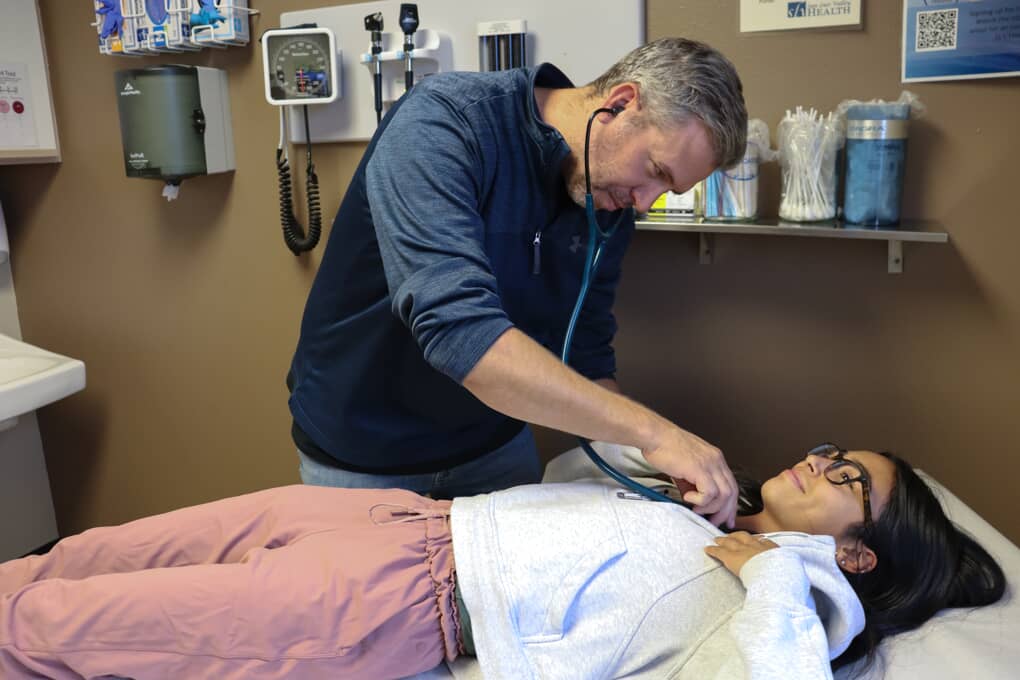Wound Care
Treatment for Chronic, Non-Healing Wounds
An acute wound is a type of injury in which the skin is torn, cut or punctured. These wounds typically heal in a short amount of time.
A chronic wound is a wound that does not heal in a predictable amount of time the way most wounds do. Venous ulcers, infected surgical wounds and diabetic ulcers are examples of chronic wounds.
At San Luis Valley Health, our outpatient wound care is provided by physician referral to our Wound Care provider. We make sure you receive the best wound care available through state-of-the-art treatment and the latest medical technology.
Wound care is the medical specialty that treats infections and injuries of your skin. Wounds may be caused by:
- Injury to the skin
- Poor circulation
- Varicose veins of the legs
- Surgery
- Pressure sores
- Infection
- Loss of sensation due to diabetes, spinal injuries or disease
Symptoms of Chronic or Infected Wounds
Your skin is the largest organ in your body covering 22 sq. feet and weighing nearly 20 lbs. Ulcers, which are open sores in the skin, occur when the outer layers of the skin are injured and the deeper tissues become exposed. They can be caused by excess pressure due to ill-fitting shoes, long periods in bed or after an injury that breaks the skin. Ulcers are commonly seen in patients living with diabetes, neuropathy or vascular disease. Open wounds can put patients at increased risk of developing an infection in the skin and bone.
The signs and symptoms of infected ulcers may include drainage, odor, or inflamed and thickened tissue,fever, and/or chills. Pain may or may not be present.
Our Approach to Treatment
Diagnosis and treatment of wounds may include x-rays to evaluate possible bone involvement. Other advanced imaging studies may also be ordered to evaluate for vascular disease, which may affect a patient’s ability to heal the wound.
Wounds are treated by removing the unhealthy tissue and performing local wound care to assist in healing. Special shoes ,casting, or padding may be used to remove excess pressure on the area, particularly for diabetic foot ulcers. If an infection is present, antibiotics will be necessary. In severe cases that involve extensive infection or are slow to heal, surgery, IV antibiotics, or other advanced wound care treatments may be necessary.
Our goal at SLV Health Wound Care is to heal all wounds as quickly as possible. Although wounds will heal at different rates, our goal is to achieve a 50% reduction in your wound within 4 weeks of care and overall wound closure within 12 weeks.
What can you do to help heal your wound?
- If you are a smoker, stop smoking
- Eat a healthy diet high in protein
- If you are diabetic, carefully monitor blood glucose levels
- Wear appropriate footwear that will not cause blisters or sores
- Listen carefully to home care instructions and follow directions for wound care.
- Ask questions – there are no ‘silly questions’.
Our team looks forward to working with you.
Wound care services are provided by Amy Blakeslee, PA-C and are available at the RMC Clinic. You can contact us at (719) 589-8073. Our fax number is (719) 589-8087.

